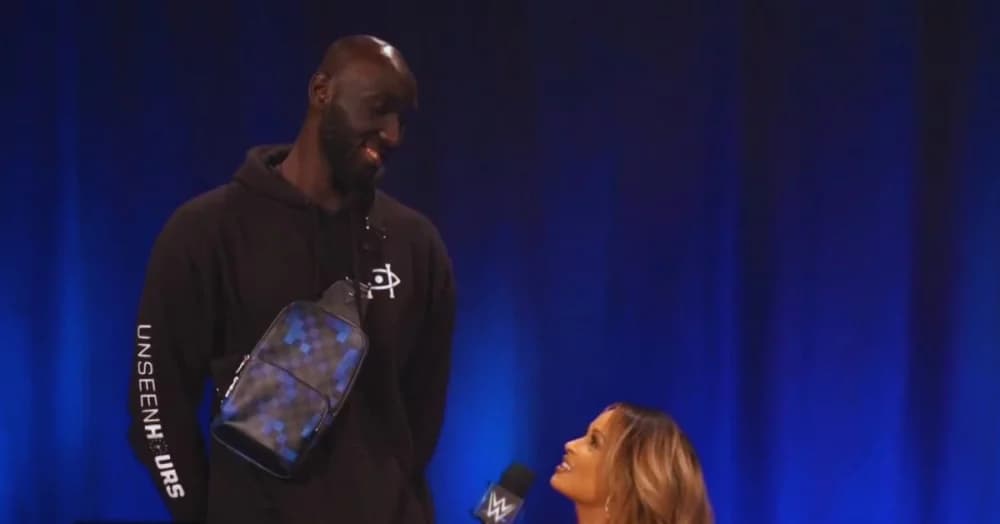Faith on the Court: Is Tacko Fall’s Belief System Holding Him Back?

Tacko Fall, an NBA player for the Boston Celtics, captivated around 200 students at an event hosted by the Black Muslim Initiative and the Islamic Center at NYU. His message? Tacko Fall’s belief system centers on faith as the core of his identity, both on and off the court. But in a world driven by fame, is it realistic for athletes to balance faith and the high-octane demands of professional sports? Some might question whether Fall’s faith-based approach hinders his career or enhances it.
Faith on the Court: Is Tacko Fall’s Belief System Holding Him Back?
Fall, originally from Senegal, moved to the U.S. at 16 after being discovered by a coaching group. His journey into basketball wasn’t typical; he began playing later than most, and his early days were filled with doubts. In fact, Fall admitted he once considered quitting the game. Yet, he persevered—a decision that led to viral fame and offers from collegiate teams, ultimately landing him at the University of Central Florida.
But Fall’s biggest asset? His unwavering belief in Islam. While many NBA players showcase their individuality through flashy shoes or tattoos, Fall chose a subtler, more profound route. He wears the number 99 on his jersey, symbolizing the 99 names of God in Islam. It’s his daily reminder, a quiet rebellion in a sport where personal branding reigns supreme.
“I needed something to ground me,” Fall explained. “For some, it’s shoes or wristbands. For me, it’s my jersey. Every time I step on the court, I’m reminded of what truly matters.”
At the event, Fall shared with students his secrets to success—discipline, hard work, and faith. He emphasized that faith has been his anchor, allowing him to navigate the chaos of professional sports. “Faith has been the biggest part of my success,” he said. “Through the highs and lows of basketball, it’s kept me grounded.”
The conversation didn’t just resonate with students on a superficial level. JD and MBA student Walla Elshekh was deeply moved, saying, “Fall’s story shows that you don’t have to compromise your beliefs to succeed in the world. It’s a powerful message for Muslims balancing faith and career.”
Hadja Diallo, a BMI mentorship chair, agreed, pointing out that seeing someone like Fall succeed shows minority students that nothing is impossible. “It’s inspiring to see someone who looks like you in the position you aspire to be in,” she said.
However, the real question is—how many athletes can actually maintain their faith in the high-pressure world of sports? Fall’s story is inspiring, but it opens a broader debate. Can professional athletes truly hold onto their values, or does the nature of fame inevitably erode personal beliefs?





